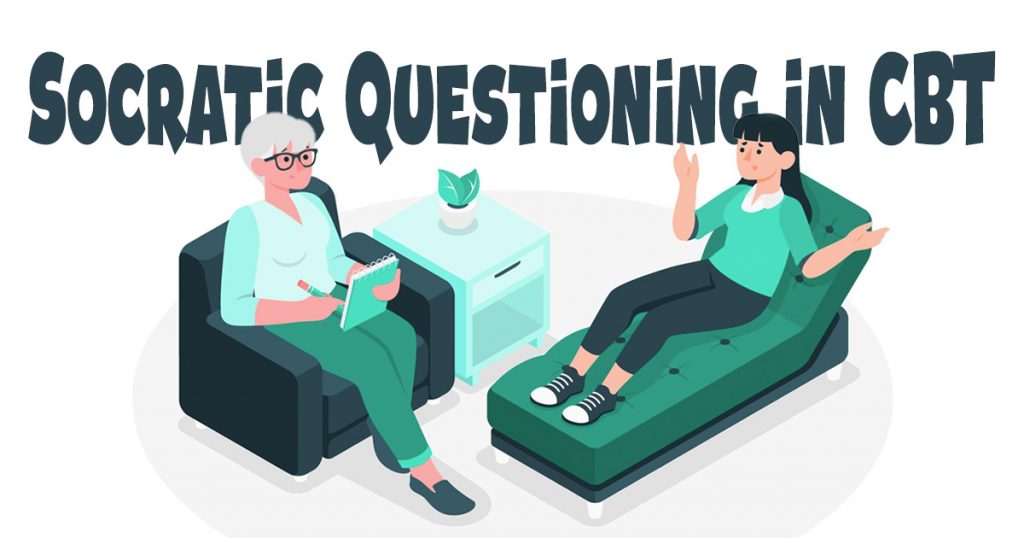Have you ever caught yourself spinning in circles with worries or negative thoughts and wondered, “Why do I think this way?” That’s where something called Socratic questioning comes into play. It’s a technique used in Cognitive Behavioral Therapy (CBT) to help people unpack their thoughts, challenge unhelpful beliefs, and see things in a whole new light.
Research backs up how effective this is too. For instance, one study found that people with depression who used Socratic questioning in therapy saw big improvements in their mood. It’s not magic, but it’s a really powerful tool for understanding and shifting the ways we think.
What’s Socratic Questioning All About?
The technique gets its name from Socrates, the Greek philosopher who loved teaching by asking lots of questions instead of giving straight answers. That same approach is what therapists bring to sessions. Rather than saying, “Here’s the solution,” they’ll ask thoughtful questions to help you figure it out for yourself.
Say you’re feeling super anxious about a presentation at work. A therapist might ask, “What makes you assume it’ll go badly?” or even, “What are some examples of times things went better than you expected?” These questions help peel back the layers and get you thinking critically instead of just reacting to your automatic fears.
For people managing anxiety, this kind of questioning is a game-changer. It gently pokes at the fears that tend to grow in silence, opening the door to new, more balanced ways of seeing things.
How It Works Step by Step
Socratic questioning isn’t random or aimless. It’s actually a very deliberate process. Here’s how it usually plays out:
Step 1: Spot the Thought
First, you and the therapist zero in on a specific thought causing you trouble. Maybe it’s something like, “I’ll mess up this project, and everyone will think I’m incompetent.” This idea can be broken down and understood.
Step 2: Dig into the Evidence
Here’s where you play detective. Your therapist might ask, “What makes you believe this will happen? Has it happened before?” You look for facts that support (or debunk) your assumptions.
Step 3: Test the Thought
If the thought doesn’t seem to hold up well under the evidence, you move on to challenging it. A therapist might ask, “What’s another way to see this situation?” or “What would you say to a friend who felt this way?” It’s often a lot easier to be kind and rational when you’re thinking about someone else, so this can help shift perspectives.
Step 4: Find a New Angle
Finally, you’ll work together to come up with a more realistic, balanced thought. For example, instead of thinking, “I’m going to fail miserably,” you might land on something like, “I’m nervous, but I’ve prepared, and I can handle this.”
There are also some great tools, like worksheets from Therapist Aid, to help guide this process outside of therapy sessions. They break things down so it’s less overwhelming and more actionable.
Why It Works
The beauty of this method is how practical and empowering it feels. No one’s telling you how to think or dismissing your fears. Instead, you’re being guided to realize, “Oh, maybe this thought isn’t as solid as I thought it was.” It’s like learning to be your own mentor.
For anxiety especially, Socratic questioning can be a lifesaver. Anxiety thrives on all those “what if” scenarios, right? Questions like, “What’s the worst that could happen? And could I handle that?” help take the sting out of those fears. Over time, this practice builds a kind of mental muscle that helps you deal with future challenges more calmly.
Everyday Examples You Can Relate To
Here are a few everyday examples of Socratic questioning in action:
Worrying about a big test:
- Belief: “I’m going to fail no matter what.”
- Question: “Wait, has that always been true? What can you do to prepare better this time?”
Feeling left out at work:
- Belief: “Everyone at work secretly dislikes me.”
- Question: “What’s the evidence for that? Have coworkers reached out to you recently?”
Avoiding social situations:
- Belief: “If I go to the party, I’m going to embarrass myself.”
- Question: “What’s the likelihood of that happening? And even if it does, could you recover from it?”
These questions may sound simple, but they’re kind of like flashlights. They shine a light on the parts of our thoughts we don’t always stop to examine.
Why I Think It’s Worth a Try
What I love about Socratic questioning is how approachable it feels. It’s not overly complicated or technical. It’s just about being curious and asking yourself, “Is this thought really as big and bad as it seems?” That curiosity can be so freeing.
If you’ve been feeling stuck in a loop of negative thoughts, I’d say give this a shot. Whether it’s working one-on-one with a therapist or even trying out some questions on your own, it’s surprising how much clarity you can gain just by asking the right thing. It’s proof that sometimes, the most powerful changes start with a question.
